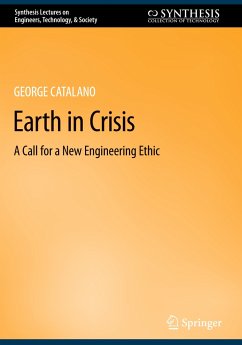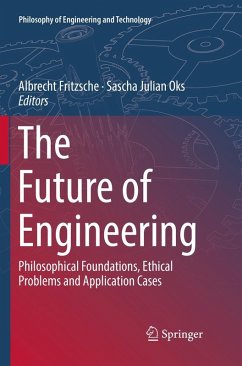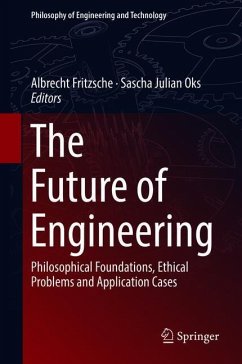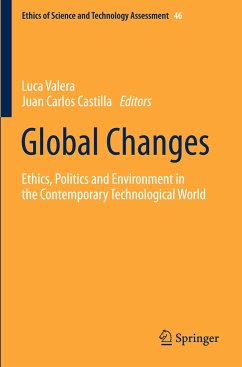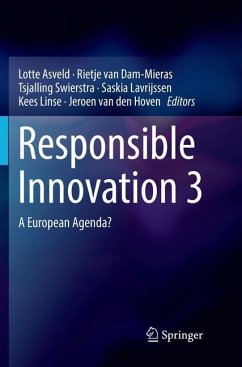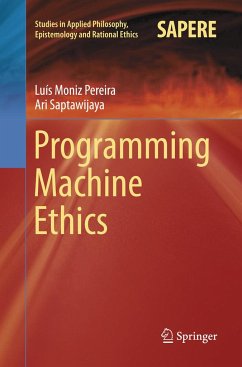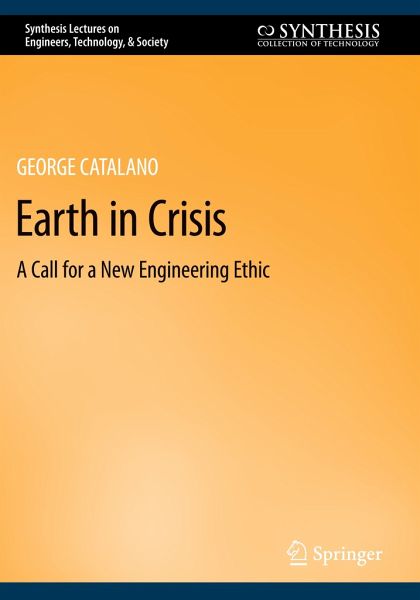
Earth in Crisis
A Call for a New Engineering Ethic
Versandkostenfrei!
Versandfertig in 6-10 Tagen
38,99 €
inkl. MwSt.
Weitere Ausgaben:

PAYBACK Punkte
19 °P sammeln!
This book examines the ethical responsibilities of engineers and scientists in light of new advances in science with a distinct reflection on quantum mechanics. This thorough coverage of these new advances will assist the reader in rethinking our place in the universe and broadening a sense of ethical responsibility for the planet. This book addresses an approach to integrating these changes and deal with issues such as global climate change and the sixth extinction.This book compares new ideas in engineering that extend ethical boundaries beyond our present understanding in which Engineering ...
This book examines the ethical responsibilities of engineers and scientists in light of new advances in science with a distinct reflection on quantum mechanics. This thorough coverage of these new advances will assist the reader in rethinking our place in the universe and broadening a sense of ethical responsibility for the planet. This book addresses an approach to integrating these changes and deal with issues such as global climate change and the sixth extinction.
This book compares new ideas in engineering that extend ethical boundaries beyond our present understanding in which Engineering ethics is locked in the world view of the 18th and 19th centuries. This books coverage examines how our understanding of the world has changed due to developments in science and society to include green, humanitarian, social justice, and omnium approaches to the engineering profession.
The coverage of societal and ethics inscience and engineering practice are examined through four major areas. Green engineering is the design that promotes the use of processes and products that minimize pollution, promote sustainability, and protect human health without sacrificing economic viability and efficiency. Humanitarian engineering seeks to directly improve the well-being of poor, marginalized, or under-served communities, which often lack the means to address pressing problems. Engineering for social justice imagines a new kind of engineering firmly affixed to the common good. Finally, a new approach, omnium engineering, seeks to promote an engineering profession that considers the wants and needs of all life forms not only that of the human species
The scope of this treatise is to examine the premise that the earth is facing grave crises when confronting global climate change and the sixth extinction. Engineering may be the planet's last best hope, but it requires a new ethic that takes a much broader view of the profession's ethical responsibilities. Moreover, the engineering ethic is rooted in the science of the past (Newtonian mechanic). Science has changed (quantum mechanics) but the engineering world view has not. Embracing this new science will inevitably lead to a new story of our responsibilities towards the planet.
This book compares new ideas in engineering that extend ethical boundaries beyond our present understanding in which Engineering ethics is locked in the world view of the 18th and 19th centuries. This books coverage examines how our understanding of the world has changed due to developments in science and society to include green, humanitarian, social justice, and omnium approaches to the engineering profession.
The coverage of societal and ethics inscience and engineering practice are examined through four major areas. Green engineering is the design that promotes the use of processes and products that minimize pollution, promote sustainability, and protect human health without sacrificing economic viability and efficiency. Humanitarian engineering seeks to directly improve the well-being of poor, marginalized, or under-served communities, which often lack the means to address pressing problems. Engineering for social justice imagines a new kind of engineering firmly affixed to the common good. Finally, a new approach, omnium engineering, seeks to promote an engineering profession that considers the wants and needs of all life forms not only that of the human species
The scope of this treatise is to examine the premise that the earth is facing grave crises when confronting global climate change and the sixth extinction. Engineering may be the planet's last best hope, but it requires a new ethic that takes a much broader view of the profession's ethical responsibilities. Moreover, the engineering ethic is rooted in the science of the past (Newtonian mechanic). Science has changed (quantum mechanics) but the engineering world view has not. Embracing this new science will inevitably lead to a new story of our responsibilities towards the planet.



